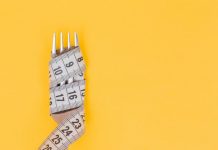Use the Fertility Diet as a resource to weigh less and get more fertile. Let this book, based on modern research, lead you to a healthier lifestyle to promote pregnancy.
Two of the most frustrating experiences you can go through are infertility and the struggle to lose weight. Unfortunately, infertility and obesity go hand-in-hand. Many overweight people find themselves having fertility problems.
The Fertility Diet, by George Chararro, Walter Willet and Patrick Skerrett, (McGraw-Hill, 2007) is a weight loss plan that increases fertility. The Fertility Diet is based on the findings from the nurses study and advises overweight people to avoid trans fat and sodas, while increasing plant protein, whole grains and whole dairy.
Highlights from the Fertility Diet
The Fertility Diet is packed with tips for increasing fertility, including a healthier diet, taking a multivitamin, increasing water and achieving a healthy weight through exercise. The Fertility Diet is a great resource because it explains conception in detail, including male and female infertility factors.
It goes on to describe good and bad fats, good and bad carbs, how to increase your fiber, how to use the glycemic index to lose weight and increase your fertility, how to take supplements with folic acid, to include extra iron in your diet, how your weight affects your ovulation, and how a BMI of 20 to 24 is ideal for fertility.
Being overweight affects sex hormones. Eventually the extra fat slows down the fat burn by lowering your metabolism. It increases Lepton, increases blood clots, increases insulin sensitivity and increases inflammation.
The Fertility Diet offers hope with the 7.5 percent solution. The book explains how to lose 5 to 10% of your weight to improve your general health and improve you chances of getting pregnant. Take your focus off of the big picture and how many total pounds you have to lose and piece together your success as a weight loss through the 7.5 percent solution.
“You can lose weight in a way that is good for your health, fertility, peace of mind, and relationship with food,” (166).
Other advice that the fertility diet book offers is:
*Use of daily food diary to track eating patterns
*To cut 250 calories per day rather than starve yourself
*Compare low-fat and low-carb diets to calorie density diets Encourage his behavior change
*Questions fad diets
*Stay in the fertility zone with a minimum of 30 minutes of exercise per day
*Meal plans and recipes to increase your fertility.
“Being at a healthy weight or aiming towards one is great for ovulatory function in your chances of getting pregnant”(191.)
The Fertility Diet is a sound program that is designed to aid obese patients in losing weight and maximizing their changes of naturally getting pregnant. Lower your weight, reduce the fat in your diet, exercise more and aim for a BMI of 24 or less to create the best chances for conception.



